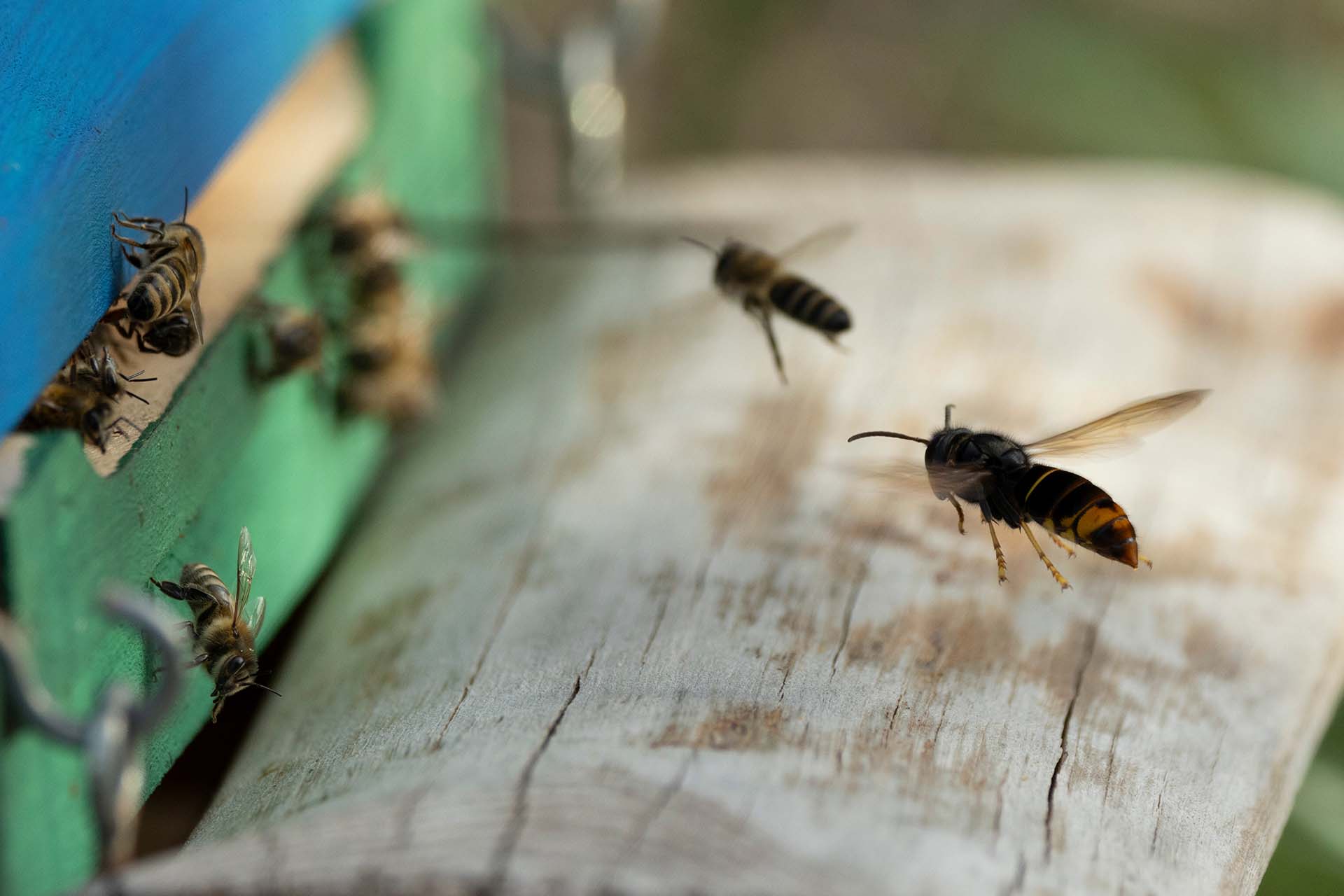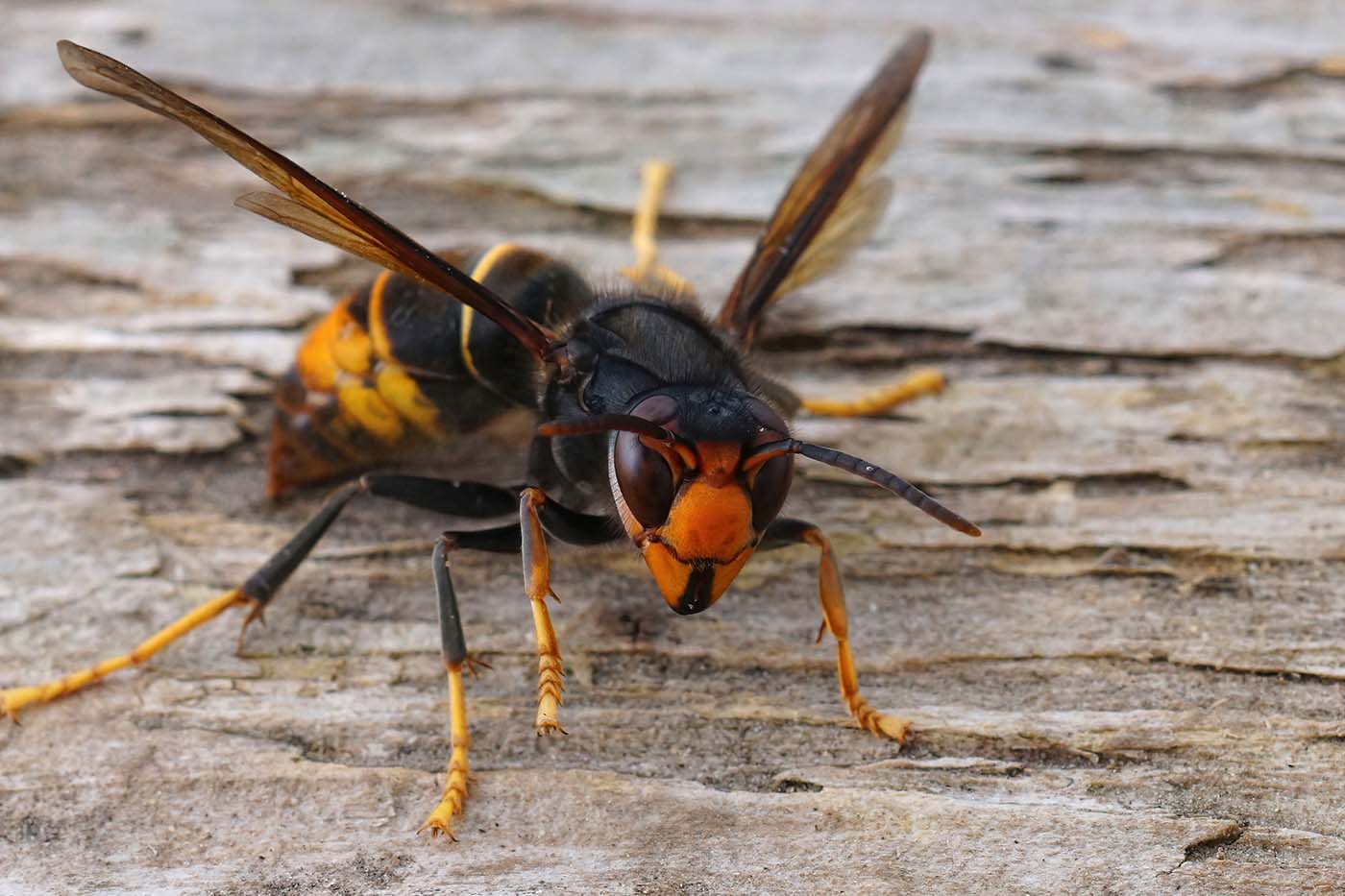Asian Hornets and the Danger to our Honey Bees – A Growing Concern for the UK
The Alarming Presence of the Asian Hornet
The UK is currently facing an increasing threat from an invasive species that poses significant risks to our ecological system—the Asian hornet (Vespa velutina). Originally from Southeast Asia, this predator has made its way across Europe and is now invading our shores via our ports. The primary concern with the Asian hornet is its aggressive predation of honeybees and other native insects. Honeybees are crucial pollinators, essential for agriculture and biodiversity, and their decline could lead to severe repercussions for plant life and food crops across the country.
Asian Hornet vs European Hornet: Know the Difference
It’s vital to distinguish between the Asian hornet and the more familiar European hornet (Vespa crabro). The Asian hornet, significantly smaller than its European counterpart, can be identified by its almost entirely dark brown or black body and the yellow tips on its legs. In contrast, the European hornet is larger and has a more pronounced yellow and brown striped body. Recognising these differences is crucial for effective monitoring and control. To help with quick and correct identification, the Asian Hornet is also now being referred to as the ‘Yellow-Legged Hornet’ in the UK to denote one of the immediately obvious differences to our native European hornet, which poses no significant threat to other indigenous insects.
Pathways to the UK
The most common route for these invasive species into the UK is through our ports. Often hidden within imported goods, particularly plants and produce, Asian hornets find an easy gateway into the country. This accidental importation is a direct result of global trade and requires stringent monitoring to manage.
A Rising Threat: The Surge in Nest Numbers
Historically, sightings of Asian hornet nests in the UK were relatively low, with figures in single digits. However, a concerning trend emerged last year, with over 50 nests reported, primarily around port areas. This significant increase signals a potential for widespread distribution across the country if not controlled effectively. It is possible the Asian Hornet is imminently becoming established permanently in the UK.
Migration Concerns and International Experiences
The Asian hornet has been prevalent in France and other parts of Europe for several years, reaching endemic levels. In places like Jersey, efforts have been made to control the population through hobby beekeepers who voluntarily monitor and track these predators. Despite these efforts, last year, the system was overwhelmed, almost leading to its collapse due to the sheer volume of hornets and nests. This situation provides a stark warning for the UK, where we seem to be repeating the same mistakes.
What to Do If You Spot an Asian Hornet
If you spot an Asian hornet, it is crucial to act swiftly. The first step is to report the sighting using the free ‘Asian Hornet Watch’ app. This alert allows the Department for Environment, Food & Rural Affairs (DEFRA) to get involved. In the UK, hobby beekeepers from the British Beekeepers Association support DEFRA by tracking Asian hornet activity. Once a nest is confirmed, DEFRA will intervene to eradicate it. Unfortunately, this volunteer-driven, reactive approach is likely to prove insufficient, mirroring the struggles currently faced in Jersey.
The rise of the Asian hornet in the UK is a pressing issue that requires immediate and effective action. We urge everyone, especially those in and around port areas (which includes inland ports / airports), to stay vigilant and report any sightings through the Asian Hornet Watch app. Your proactive efforts are essential in safeguarding our industrious honeybees and maintaining the balance of our ecosystem. For more information on how you can help or to become a volunteer, please visit British Beekeepers Association and stay informed about the latest updates from DEFRA. Together, we can help combat this invasive threat, protect our environmental heritage, and help protect our native honeybee colonies.
For immediate support and professional pest control services, do not hesitate to contact experts. Visit iX5 Pest Control for comprehensive solutions and assistance in hornet pest control. Whilst pest controller companies are currently unable to tackle Asian Hornets nests as these are reportable to DEFRA, we can offer advice and support on this and all other pest issues.


